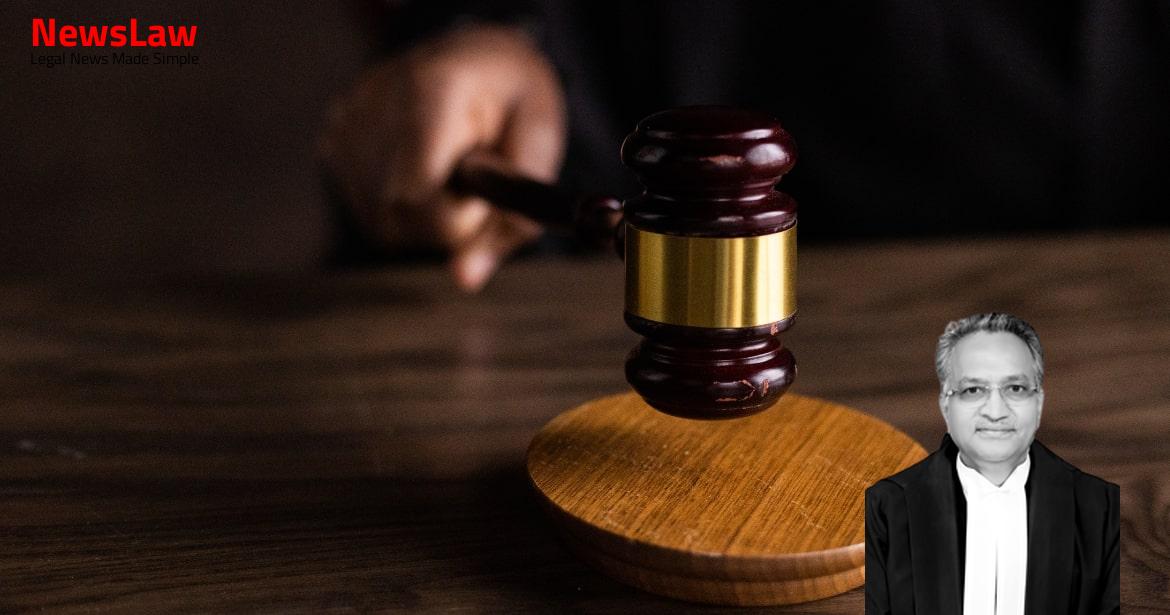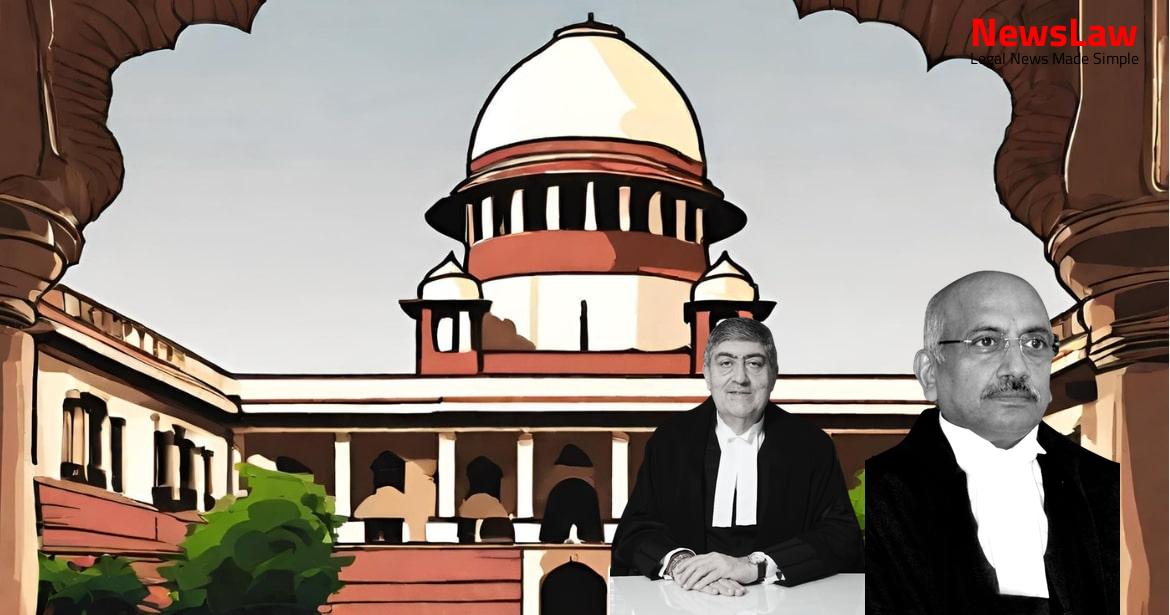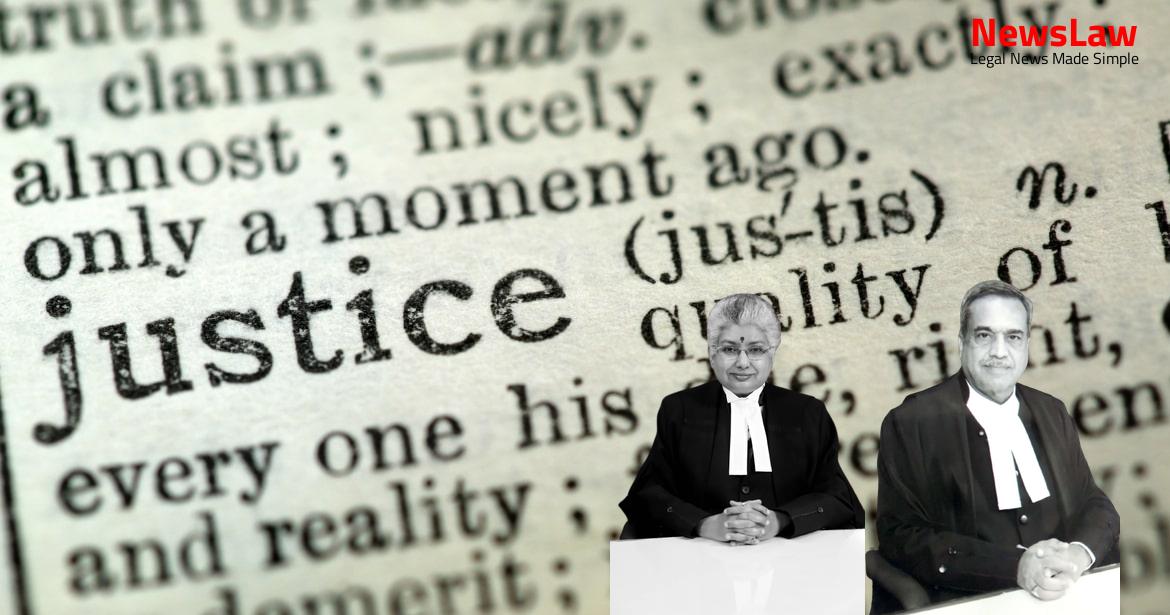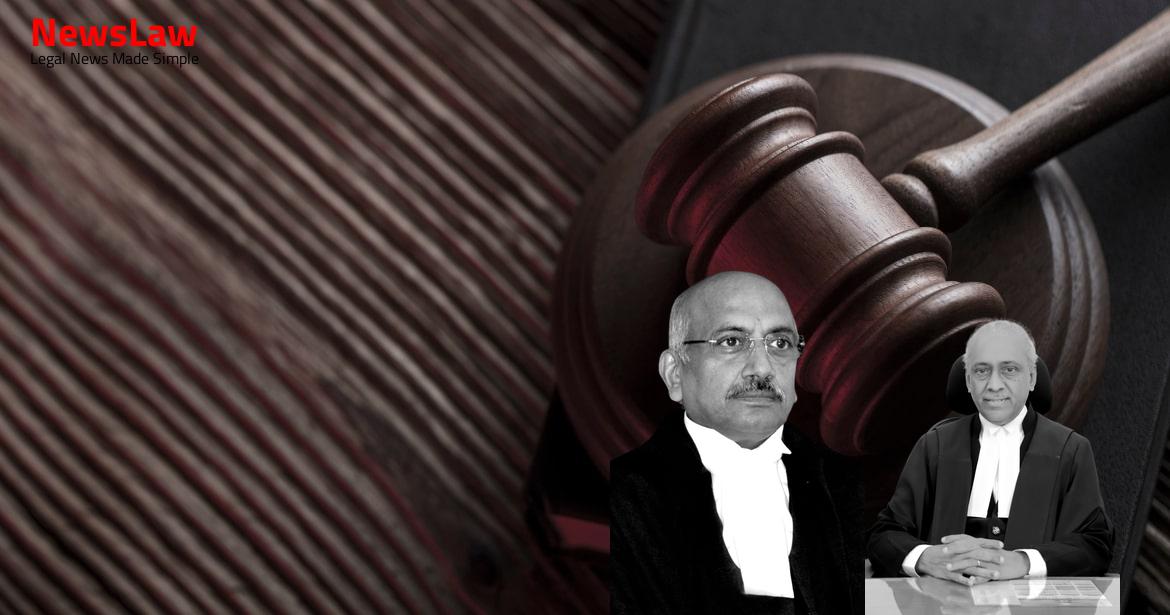In a complex legal battle for child custody, the court’s meticulous procedural analysis and adherence to principles of natural justice take center stage. The court’s decisions hinge on ensuring fair treatment for both parties while safeguarding the best interests of the minor child involved. Let’s explore how legal procedures and norms are vital in resolving such sensitive matters with justice and equity.
Facts
- The appellant and respondent have had multiple legal proceedings against each other, stemming from their troubled marital relationship.
- The appellant filed a guardianship petition and habeas corpus petition, while the respondent also filed habeas corpus petitions.
- Contempt petitions were filed by both parties due to non-compliance with court directions on custody and visitation rights.
- The appellant filed a special leave petition against the High Court’s decision in the habeas corpus petition.
- The High Court allowed the respondent to be transposed as the petitioner in the appellant’s guardianship petition.
- Despite a transfer order from this Court, the High Court proceeded to dispose of an appeal, causing confusion.
- Various applications, including for amendment of petitions, were filed by both parties before the Family Court.
- The Family Court appointed the respondent as the sole guardian and custodian of the minor child.
- The appellant challenged the Family Court’s decision in a MAT appeal before the High Court.
- Both parties engaged in legal battles without resolving underlying issues, such as the question of guardianship.
- The respondent filed an application for guardianship, and the Family Court’s handling of this application is unclear.
- The appellant filed a habeas corpus petition, to which the respondent did not reply promptly.
- Appellant did not receive proper notice regarding the application under consideration.
- Court did not address the issue of whether the application was served upon the appellant.
- No mention of notice regarding the application under Section 151 of the CPC and subsequent application for transposition under Order I Rule 10.
- On 21.9.2019, the matter was scheduled for hearing before the Family Court.
- Two separate orders were passed – one stating that the appellant had abandoned and withdrawn from the case, allowing the respondent to be transposed as the petitioner in the guardianship petition.
- The Court ruled in favor of the respondent mother being declared as the sole guardian and custodian of the minor child in the best interest and welfare of the child.
Also Read: Legal Analysis on Diplomatic Immunity Exception Case
Arguments
- The appellant argues that the respondent is unfit for parental custody or guardianship of the minor child.
- The appellant cites various cases to support their argument, including Nithya Anand Raghavan vs State (NCT of Delhi) & Anr., Prateek Gupta vs Shilpi Gupta & Ors., Kanika Goel vs State of Delhi & Anr., and ABC vs State (NCT of Delhi).
- The appellant points out that the respondent admitted during counseling that due to being a working woman, the child can stay with the grandparents during the day on working days.
- The appellant emphasizes the unfitness of the respondent to care for the child and provide adequate time and attention.
- The appellant supports joint custody or shared parenting as being in the best interest of the child.
- The appellant refers to the Mamata Mayee Sahoo vs Abinash Sahoo case where procedural compliances by the Family Court were noted.
- The appellant states that he has informed the client and the respondent’s counsel about seeking discharge from representing the petitioner in the case.
- Mother recognized as the natural guardian by the Family Court.
- Appellant’s misconduct rendered him unfit as a guardian.
- Respondent rightfully acknowledged as the sole guardian of the minor.
- Maternal preference rule established under Section 6(a) of the 1956 Act grants the mother absolute custody of the minor daughter.
- Ongoing risk of kidnapping or escape by the appellant, making him a flight risk.
- Appellant’s conversion to Islam, abduction of the minor child, and obtaining Dominica citizenship raises concerns.
- Need to safeguard the minor child’s interest and prevent further unauthorized actions by the appellant.
Also Read: Autonomy of Private Unaided Schools in Fee Determination
Analysis
- The Family Court failed to follow the established practice and procedure for adjudicating disputes under the 1984 Act.
- The appellant is accused of abandoning the proceedings before the court.
- The Family Court exceeded its jurisdiction by hastening the proceedings.
- The Court did not follow the prescribed procedure and principles of natural justice.
- The Family Court issued orders without ensuring rights to the appellant.
- The procedure followed by the Family Court was considered vitiated in law.
- The Court should have acted in a child-centric manner regarding the minor child’s welfare.
- The Court should have followed a fair procedure adhering to legal norms.
- Transposition applications should have been handled more diligently with notice to both parties.
- The paramount interest and welfare of the child should be a central concern of the Court.
- The respondent took U.S. nationality for the minor child and obtained a Consular Report of Birth Abroad Status (CRBA) from the U.S. Embassy in December 2019.
- The respondent is accused of precipitating the matter despite the Court’s directions in connected proceedings.
- The Court emphasized that legal procedures should facilitate justice, not penalize or trip people up.
- It warned against overly technical interpretation of laws that could hinder justice.
- Family Court expected to follow procedure known to law
- Formal pleading to be filed by both sides
- Frame issues for determination
- Record evidence of parties
- Enter upon determination and render decision with reasons
- Prayer for welfare of minor can be made by anyone interested
- Court can appoint applicant as guardian of minor’s person or property
- Evidence of formal character can be given by affidavit
- Family Court not obliged to record evidence of witnesses at length
- Substance of witness depositions to be recorded and signed by witness and Judge
- Custody of the minor child does not need to be immediately restored to the father.
- Exploration of the possibility of a joint shared parenting plan is not a necessity at this stage.
- The Family Court should examine the best interests of the child after hearing both sides and in accordance with the law.
- The respondent has assured through counsel to surrender any claim to avoid misunderstandings by the appellant.
Also Read: Land Ownership Dispute Legal Analysis
Decision
- Notice was issued on the petition on 19.2.2018 but the order dated 19.9.2019 did not mention if the notice had been served to the appellant.
- The court passed an order on 20.9.2019 stating the matter would proceed before the Family Court in accordance with the law.
- The appeal was partly allowed on 20.9.2019 and all pending applications were disposed of.
- The court directed remand and revival of the Guardianship petition and all applications filed by the appellant.
- The appellant’s requests for declaration as the guardian of the baby and appointment as guardian were not addressed by the Family Court.
- The Family Court unilaterally cancelled a returnable date of 30.10.2019 which was already scheduled.
- The respondent was noted to have taken U.S. citizenship for the minor child and a U.S. passport in the child’s name.
Case Title: AMAN LOHIA Vs. KIRAN LOHIA (2021 INSC 190)
Case Number: T.C.(C) No.-000025 / 2021



